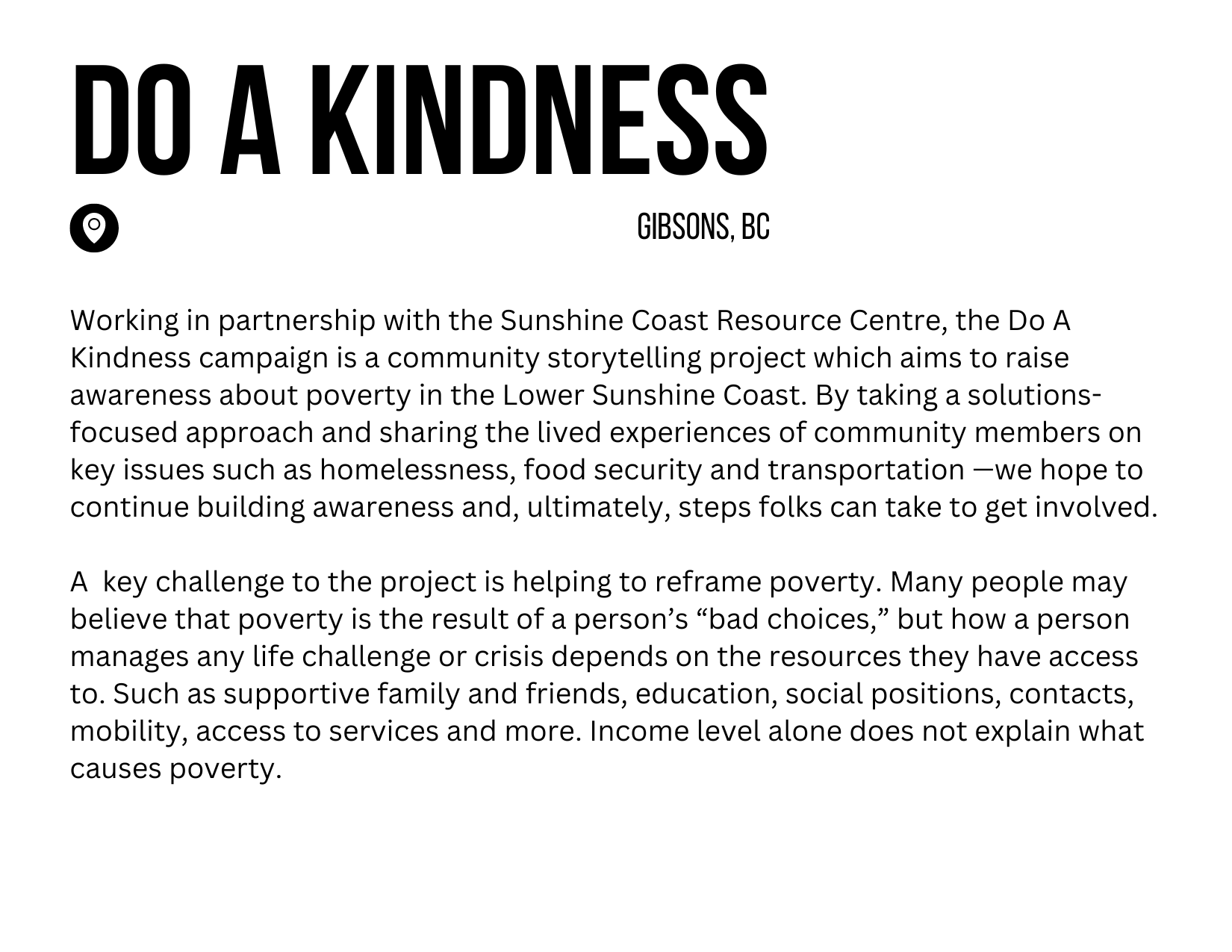

“We’ve all got things about ourselves that we like and things about ourselves that we’d like to change,” says Martin. “Anybody can fall on hard times. It doesn’t matter where you come from or what your social standing is. At any given moment, things could change, and they did for me.

“What we’d like to see, especially with making public transit free for students across the Sunshine Coast, is first and foremost access to transit. Youth are largely dependent upon our parents and don’t have full control of their financial situations,” says Colten.

“The reward for me is seeing people happy to stay in their own house. They can keep their pets; they have their own routine and their own bathroom. They know where everything is, and they feel comfortable,” says Jake. “Especially when people start losing their memory or their mobility, being at home and having some independence makes their lives better.”

“Growing up, the food bank was often the only stopgap between us and hunger, so I’m just paying it forward,” says Dawn. “We’re trying to remove barriers for people who don’t have a way to get there themselves or don’t want to be seen at the food bank.”

“My hope is that some of them will remember doing those things and then carrying on that role of helping others and seeing everyone as a “real person” throughout their lives,” says Mrs. Allen. “One of my favourite things as a teacher is having conversations with my students about “real life events” and seeing where it takes them!”

“There is a lot of need in this community, and homelessness is complex. It’s not just people we think of as being on the street. It’s a mum living in her car with her kids. It’s a senior who can’t afford their apartment anymore,” explains Roksy.

“I have a client who works full time, and her partner stays home with the kids because they can’t find or afford childcare,” shares Chantelle. “They don’t have a home right now simply because they can’t afford anything.”








“We’ve all got things about ourselves that we like and things about ourselves that we’d like to change,” says Martin. “Anybody can fall on hard times. It doesn’t matter where you come from or what your social standing is. At any given moment, things could change, and they did for me.
“What we’d like to see, especially with making public transit free for students across the Sunshine Coast, is first and foremost access to transit. Youth are largely dependent upon our parents and don’t have full control of their financial situations,” says Colten.
“The reward for me is seeing people happy to stay in their own house. They can keep their pets; they have their own routine and their own bathroom. They know where everything is, and they feel comfortable,” says Jake. “Especially when people start losing their memory or their mobility, being at home and having some independence makes their lives better.”
“Growing up, the food bank was often the only stopgap between us and hunger, so I’m just paying it forward,” says Dawn. “We’re trying to remove barriers for people who don’t have a way to get there themselves or don’t want to be seen at the food bank.”
“My hope is that some of them will remember doing those things and then carrying on that role of helping others and seeing everyone as a “real person” throughout their lives,” says Mrs. Allen. “One of my favourite things as a teacher is having conversations with my students about “real life events” and seeing where it takes them!”
“There is a lot of need in this community, and homelessness is complex. It’s not just people we think of as being on the street. It’s a mum living in her car with her kids. It’s a senior who can’t afford their apartment anymore,” explains Roksy.
“I have a client who works full time, and her partner stays home with the kids because they can’t find or afford childcare,” shares Chantelle. “They don’t have a home right now simply because they can’t afford anything.”